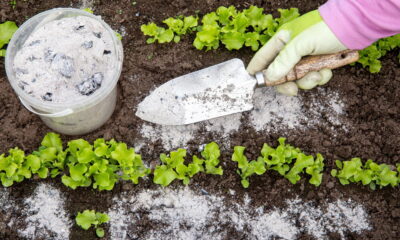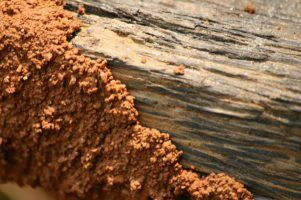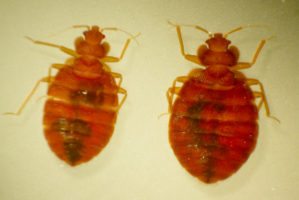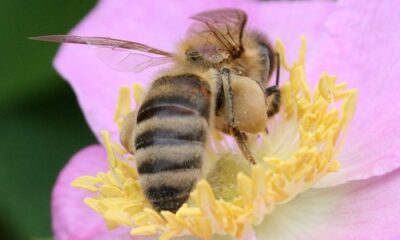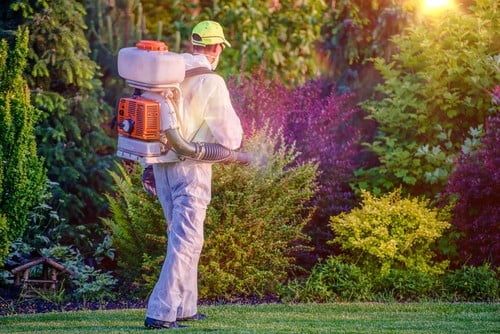

Editors Choice
How To Manage Pests Without Killing The Precious Ecosystem
Getting rid of pests is a huge hassle. Homeowners spend over $8 billion a year on pest control services in the United States alone. This figure is rising about 5% a year, due to the growing number of pests infesting homes around the world.
Unfortunately, many pest control solutions are terrible for the environment. Environmental damage from pest control solutions have worsened since the 1970s. They also have a terrible impact on our health. Some pesticides have even been linked to certain intersex disorders.
It pays to be eco-friendly. Climate change is happening, and around the world, regular folks like you are looking at ways that they can reduce their carbon footprint. There are heaps of things you can do to live a green life, including cycling or taking public transport to work, becoming a one-car family, composting, recycling, upcycling and investing in solar panels. You can also take steps to live green in other areas of your life, including pest prevention. Yes, you read that right. Pest control solutions aren’t all nasty chemicals that are bad for the environment. Let’s check out a green guide to natural pest prevention and learn some ways to keep the creepy crawlies out of your grill.
Professional Pest Control Services
Did you know that some pest control services offer eco-friendly and green treatments? When you begin to ring around the full range of companies on the market, make sure to ask about their methods. Most will be upfront with you and let you know if they use organic or green solutions. If they’re evasive or otherwise can’t answer your question, then keep ringing until you find a provider that offers a service that’s as good for the planet as it is for your home.
Getting Rid of Cockroaches
Cockroaches are a common pest, and they’re attracted to crumbs of food left lying around. The first line of defense is to clean your benchtops, floors, and in little nooks and crannies as often as you can, and to keep your dried food in airtight containers. If you spot a cockroach, fill a spray bottle with soapy water instead of reaching for the toxic fly spray. The soap will kill them just as quickly, and you can make your home, and the environment, emission-free.
Shoo Fly, Don’t Bother Me
Flys are another common pest, and while no house can get rid of them entirely, there are a few green steps you can take to discourage them. Make some sachets, either with fabric or old handkerchiefs, filled with eucalyptus, cloves and bay leaves, and hang them near windows or doors. Flys loathe these smells and should stay well away.
Outdoor Gathering?
Are you planning a summer BBQ or party? Are you worried about those pesky mosquitoes? Nothing kills a party mood quicker than an itchy mozzie bite! Mix some garlic juice in with water and use it as a natural repellent. You can also soak cloth strips in the same solution and hang them near the windows to deter the blighters from getting in at night.
Stop the Ants Marching
Ants are another frequent offender, but there are ways to keep them at bay without resorting to toxic chemicals. They hate mint, so dry and crush some mint or sprinkle mint tea where they’re hanging around. Or, if you can spot where they’re getting in, make a line of citrus oil, cinnamon or even coffee grounds – they won’t be able to cross over.
Solving Pest Control Problems While Protecting Mother Earth
If you’re after professional pest services, choose a green provider. They may be a bit tricky to find, but they’re out there. Clean up after yourself to deter the cockroaches, and spray them with soapy water instead of insect spray. Use our above tips to keep flies, mosquitoes and ants at bay and feel comforted knowing that you’re doing your bit for the earth.


 Environment12 months ago
Environment12 months agoAre Polymer Banknotes: an Eco-Friendly Trend or a Groundswell?

 Features11 months ago
Features11 months agoEco-Friendly Cryptocurrencies: Sustainable Investment Choices

 Features12 months ago
Features12 months agoEco-Friendly Crypto Traders Must Find the Right Exchange

 Energy11 months ago
Energy11 months agoThe Growing Role of Solar Panels in Ireland’s Energy Future


